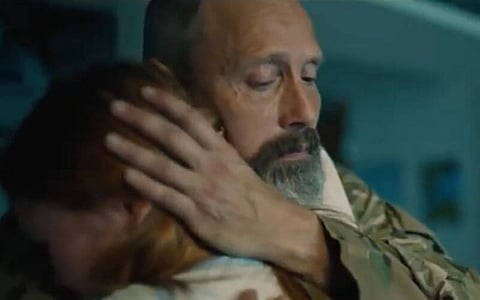
- Reviews
- Power List 2024
- Cannes 2024
- In-Depth Stories
- Web Stories
- News
- FC Lists
- Interviews
- Features
- FC SpecialsFC Specials

Earlier this week, I was in conversation with Indranil Roychowdhury, who is doing the festival rounds with his Indo-Bangladeshi co-production, Mayar Jonjal (Debris of Desire). The film — which premiered last year at the Shanghai International Film Festival, and will next play at the International Film Festival of Kerala — is an amalgamation of two short stories by Manik Bandopadhyay, and I asked Indranil about his decision to let these two stories play out in parallel (as opposed to letting the first story play out, come to a conclusion, and then beginning the next one, like we see in anthologies). He said something very interesting. He said that the challenge for a filmmaker working today, after a century of cinema, is that all stories have been told. So there needs to be a constant effort to find something new, something that cuts through the clutter…
Anders Thomas Jensen's Danish drama Riders of Justice, which opened the International Film Festival of Rotterdam on February 1, is one such film. If you look at just the inciting incident, this story has already been told. A woman dies in a train accident. Her husband — a soldier Markus (Mads Mikkelsen) — learns that this might not have been an accident, after all. He assembles a motley crew of men (actually, most of them find him), including the inevitable hacker, and he embarks on a revenge mission. How many times have we seen this scenario unfold on screen?
But not this way. The real protagonist — the man whose work becomes the narrative's philosophical foundation — turns out to be a nerdy data analyst named Otto (Nikolaj Lie Kaas), who believes there are no coincidences. "Because we have insufficient data, we call certain events coincidences," he declares. And the film turns into a series of what if-s. What if the train accident was not a random event? What if this "accident" had to do with the presence (in the train) of a passenger who was going to testify in a gang-related trial? Or rewind a little, to the scene where we first meet Markus' daughter Mathilde (Andrea Heicke Gadeberg). What if her bicycle hadn't been stolen, and her mother hadn't had to drive her to school, and what if the car hadn't refused to start, and what if they hadn't been forced to take that fateful train?
Under the guise of a revenge thriller, Riders of Justice, thus, asks if life is a series of coincidences (in which case, as a priest says, nothing matters). Or is life like chess? It is the only game where chance and luck aren't a factor. There's no Joker card, no hidden surprises — everything is determined solely by your actions. Riders of Justice attempts an answer through the ultraviolent actions of Markus and his men, which remind that all actions have consequences. The tone of the film is all over the place. We have the emotional angle of Mathilde and her father who was never around. We have the black comedy of civilians being trained in arms, putting together guns. (One of them grumbles, "If I wanted to assemble stuff, I'd have gone to IKEA!") The director isn't able to make everything stick, come together as a unified whole. But I liked the conceit of a makeshift family being "assembled" — IKEA-style — by people united through loss. Riders of Justice occurs during Christmastime, and the ending is truly a miracle.
With all the travel restrictions, festivals have begun to open up digital editions. Sitting in Chennai, I am "attending" the Rotterdam film festival, whose biggest highlights for the Indian audience are the world premieres of PS Vinothraj's Koozhangal (Pebbles) and M Manikandan's Kadaisi Vivasayi (The Last Farmer). The former is competing in the Tiger Competition, which was founded with the aim of "discovering, raising the profile of and rewarding up-and-coming international film talent". (Last year, Arun Karthick's Nasir was in this section.) Manikandan's much-awaited fourth feature is in the Big Screen Competition, which was also scheduled to feature Rajeev Ravi's Thuramukham (The Harbour). For whatever reasons, that film is not part of the final lineup. Thuramukham has a smashing cast (Nivin Pauly, Indrajith Sukumaran, Nimisha Sajayan, Joju George), sure, but the bigger draw — at least for me — was watching Rajeev's first directorial feature in nearly five years. The last one was Kammatti Paadam, in 2016.
Do digital versions qualify as a festival experience? My two euros: No! Because a film festival is not just about watching films. It's the experience, which varies from city to city. It's the boat-travels in Venice. It's the sun at Cannes. It's the thrill of being one of the few brown men in an auditorium in Berlin, enjoying an almost all-white audience respond to Nagraj Manjule's Sairat. (They were actually foot-tapping with the songs.) It's the Q and A sessions after the screenings. And if I am being snobbish, it's also about the "exclusivity" of being part of a handful of critics, being the first in the world to line up for and watch and weigh in on breathlessly anticipated films. I guess I'm saying that digital versions of film festivals are another reminder that all the convenience in the world can't make up for the theatrical experience.